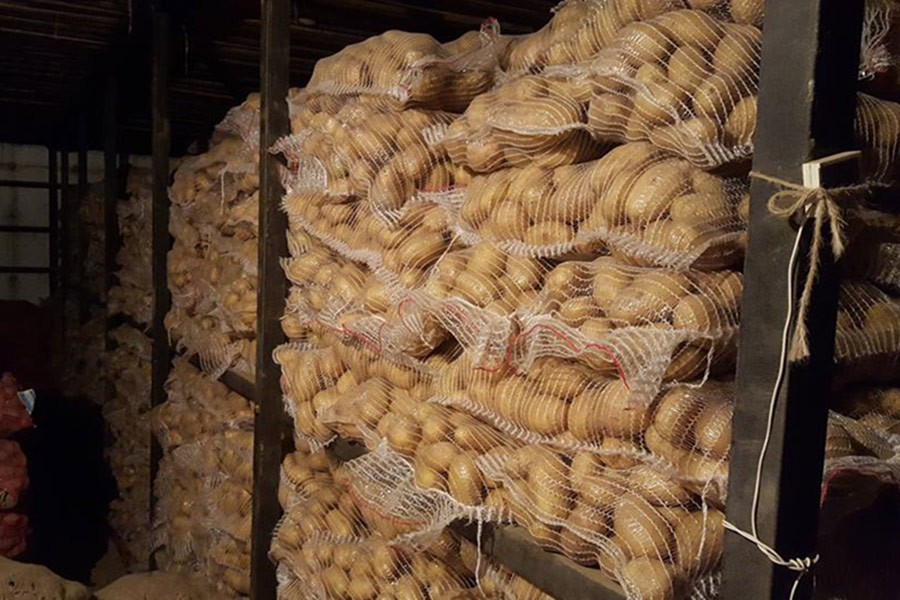

The recent surge in cold storage rent for potatoes has sparked widespread discontent among farmers, who argue that the increase is "unreasonable" and a significant threat to their livelihoods. The Bangladesh Cold Storage Association (BCA), which represents 405 cold storage facilities, has set the maximum rent at Tk 8.0 per kilogram of potatoes for the current season. While the association claims this is a modest increase from last year's Tk 7.0 per kg, farmers insist the real impact is far greater due to new regulations on storage weight limits. Previously, farmers could store potato sacks weighing up to 70 kgs for a flat rate of Tk 350 per sack. Under the new system, storage sacks are restricted to 50 kgs, and the charge is now based on the rate of a kilogram. This means, instead of paying Tk 350 per sack, farmers now have to pay Tk 400 for the same quantity of potatoes. This abrupt rise in costs has led to widespread protests among potato farmers, who fear that the added expenses will inevitably be passed down to consumers, leading to higher potato prices in the coming months and creating market instability.
The decision to increase cold storage rent was reportedly made during a BCA meeting in November last year, with cold storage operators instructed to implement the new pricing from mid-January. However, the Ministry of Agriculture has expressed its ignorance of the decision. A report by this newspaper cites ministry sources as stating that cold storage owners did not communicate this change to the government. Cold storage operators are reportedly trying to justify the rent hike by citing rising operational costs, including high-interest bank loans and increased electricity tariffs. Critics, however, argue that no substantial increase in operational expenses has been in effect to justify such a rise in storage charges.
For years, the price of potato has fluctuated unpredictably, often leaving farmers vulnerable to sudden market shifts. This season, farmers and traders estimate that their storage costs have nearly doubled, exacerbating financial strain. If this issue is not addressed promptly, many farmers may be forced to sell their produce immediately at lower prices in order to avoid the high storage costs, leading to significant financial losses and market distortions. Potato production is projected to be very good this season. According to the Department of Agriculture, the production target for this year stands at 10.13 million tonnes from 4.67 lakh hectares of farmland. The country currently operates around 350 functional cold storage facilities, collectively capable of holding roughly 3.0 million tonnes of potatoes-approximately one-quarter of the total production. However, not all harvested potatoes are stored in cold facilities, as many are sold fresh in local markets.
With no immediate solution in sight, this ongoing dispute highlights broader challenges, particularly in balancing the interests of growers and storage facility operators. The government, particularly the Ministry of Agriculture, must intervene by engaging in discussions with the BCA and farmer representatives to arrive at a fair and sustainable storage rent structure.


 For all latest news, follow The Financial Express Google News channel.
For all latest news, follow The Financial Express Google News channel.